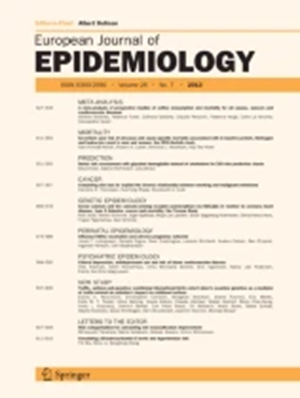阿姆斯特丹纵向老龄化研究:设计和队列更新2025。
IF 5.9
1区 医学
Q1 PUBLIC, ENVIRONMENTAL & OCCUPATIONAL HEALTH
引用次数: 0
摘要
阿姆斯特丹纵向衰老研究(LASA)是一项正在进行的荷兰老年人前瞻性队列研究,在超过30年的随访期间提供了多个功能领域的数据。这项研究始于1992年,选取了全国具有代表性的55-84岁老年人作为样本。多年来,增加了三个更新队列(2002年和2012年分别增加了两个55-64岁队列,2024年增加了一个60-86岁队列)。LASA的主要目的是描述身体、认知、情感和社会功能(变化)的决定因素、轨迹和后果。LASA具有多种优势,包括其多学科特征,非常长的随访时间,以及能够研究纵向变化以及功能历史时间趋势的队列序列设计。迄今为止,基于LASA数据的发现已经发表在800多份科学出版物上(见www.lasa-vu.nl)。在这篇文章中,我们提供了LASA的设计和方法的更新,包括一些辅助研究的描述,如孤独研究和COVID-19研究。本文章由计算机程序翻译,如有差异,请以英文原文为准。
The Longitudinal Aging Study Amsterdam: design and cohort update 2025.
The Longitudinal Aging Study Amsterdam (LASA) is an ongoing prospective cohort study of older adults in the Netherlands, with data on multiple domains of functioning available over a period of more than 30 years of follow-up. The study started in 1992 with a nationally representative sample of older adults aged 55-84 years. Over the years, three refresher cohorts (two cohorts aged 55-64 years in 2002 and in 2012, and one cohort aged 60-86 years in 2024) were added. The main aim of LASA was to describe determinants, trajectories and consequences of (changes in) physical, cognitive, emotional and social functioning. LASA has multiple strengths, including its multidisciplinary character, the very long period of follow-up, and the cohort-sequential design which enables the study of longitudinal changes as well as historical time trends in functioning. So far, findings based on data from LASA have been reported in more than 800 scientific publications (see www.lasa-vu.nl ). In this article, we provide an update of the design and methods of LASA, including a description of several ancillary studies such as the Loneliness study and the COVID-19 study.
求助全文
通过发布文献求助,成功后即可免费获取论文全文。
去求助
来源期刊

European Journal of Epidemiology
医学-公共卫生、环境卫生与职业卫生
CiteScore
21.40
自引率
1.50%
发文量
109
审稿时长
6-12 weeks
期刊介绍:
The European Journal of Epidemiology, established in 1985, is a peer-reviewed publication that provides a platform for discussions on epidemiology in its broadest sense. It covers various aspects of epidemiologic research and statistical methods. The journal facilitates communication between researchers, educators, and practitioners in epidemiology, including those in clinical and community medicine. Contributions from diverse fields such as public health, preventive medicine, clinical medicine, health economics, and computational biology and data science, in relation to health and disease, are encouraged. While accepting submissions from all over the world, the journal particularly emphasizes European topics relevant to epidemiology. The published articles consist of empirical research findings, developments in methodology, and opinion pieces.
 求助内容:
求助内容: 应助结果提醒方式:
应助结果提醒方式:


